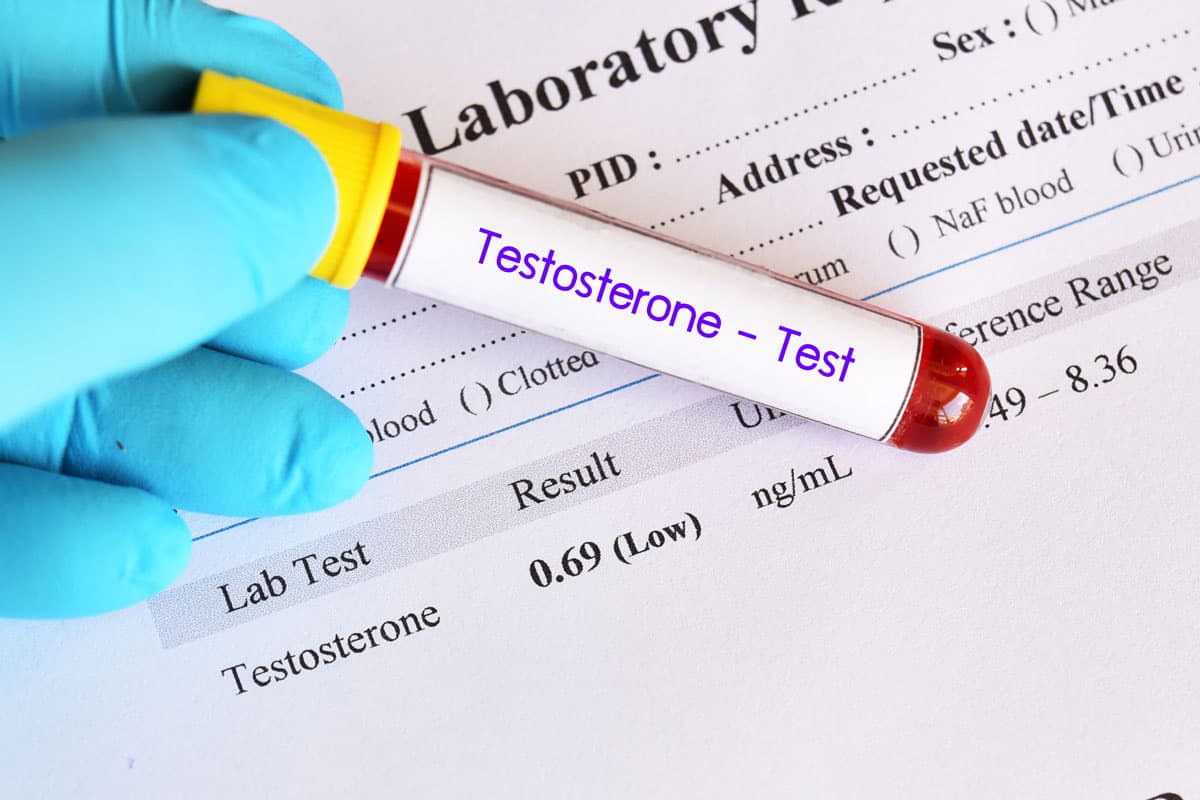Overview
Anabolic-androgenic steroids (AAS) consist of a synthetic form of testosterone, which is a sex hormone predominantly found in males.

Chemical structure of the natural AAS
Because every cell of the body has AAS receptors, the action of steroids is widespread throughout various tissues and organs (e.g., brain, muscles, bones, liver, kidney, hair).
In men, naturally-occurring testosterone levels skyrocket during puberty to promote the development of male sex traits (e.g., deeper voice, hair growth, increased muscle mass).
However, women also produce small amounts of this hormone in the adrenal glands. While the action of testosterone on women is not as potent, it still serves the purpose of promoting bone density and a healthy libido.
Generally speaking, normal testosterone levels range between:
- 300–1,000 ng/dL for men
- 15–70 ng/dL for women
To increase muscle mass, many athletes in the bodybuilding field take AAS; however, there are several side effects to be on the lookout for.
In this article, we will detail some of the side effects you will see after taking AAS.
The side effects of steroids
The side effects of AAS vary dramatically from one individual to another, depending on the extent and duration of use. Additionally, recent research shows that genetics play a role in determining the body’s response to AAS.
Finally, the anabolic-to-androgenic ratio is the primary factor that estimates the severity of adverse effects.
- Anabolic – muscle growth properties
- Androgenic – male sex traits promotion
Here are the adverse effects of Anabolic-androgenic steroids:
Increased risk of heart disease
Combining AAS with resistance training eventually leads to the enlargement of the left ventricle (i.e., a chamber found in your heart).
Ventricular enlargement might sound benign; however, this phenomenon will alter the heart’s ability to pump blood properly, especially during exertion. The final result will be a left ventricle that does not contract properly, altering the body’s supply of oxygen and nutrients.
Eventually, this leads to left-sided heart failure, which is an incurable disease that requires cardiac transplantation to completely heal.
Moreover, excessive strain on the heart and peripheral blood vessels leads to chronic blood hypertension, which increases your risk of coronary artery disease and death.
Behavioral changes
Similar to high levels of naturally-occurring testosterone, AAS intake induces aggression and impulsivity, especially in teenagers and young adults. This can be quite problematic, precipitating domestic incidents and violent behavior.
Alteration of body image
According to the Diagnostic and Statistical Manual for Mental Disorder 5 (DSM–V), the use of AAS is part of the body image disorder.
In other words, the person addicted to AAS is dependent on its action to improve their body image since it’s all distorted in their brain.
Liver damage
Oral AAS gets metabolized by the liver before excretion from the body. As a result, hepatocytes (i.e., liver cells) are at risk of damage and death, which eventually causes extended liver damage and dysfunction.
May cause gynecomastia
Gynecomastia describes the swelling of male breast tissue caused by hormone imbalance. This condition rarely responds to medical treatment and requires the surgical excision of the excess tissue.
In general, gynecomastia occurs after stopping the intake of AAS since the body will be used to high concentrations of testosterone in the blood.
Diminished production of testosterone
The regular intake of AAS suppresses the body’s natural abilities to produce testosterone. As a result, you may experience hypogonadism, especially after the interruption of AAS.
Symptoms of hypogonadism include:
- Decreased size and function of the testicles
- Diminished sexual drive
- Fewer male sex traits (e.g., hair development)
- Male infertility
Side effects for women
The adverse effects listed above can affect both men and women. However, females are more susceptible to additional side effects, which include:
- Deeper voice
- Facial changes and hair growth
- Enlargement of the clitoris
- Irregular menstrual cycles
- Decreased breast size
- Infertility
More side effects
Blood lab abnormalities
AAS use commonly alters lab values, mandating frequent blood work.
Here are the possible alterations of blood lab values:
High hemoglobin and hematocrit – these two markers indicate the body’s ability to transport oxygen throughout the systemic circulation. Increased values may lead to blood thickening, which augments the risk of heart attack and stroke.
Increased LDL (i.e., bad cholesterol) and decreased HDL (i.e., good cholesterol) – the combination of high LDL and high HDL is collectively referred to as dyslipidemia – a major risk factor of coronary artery disease and strokes.
Abnormal liver function tests (LFTs) – AAS use often leads to increased levels of aspartate transaminase (AST) and alanine transaminase (ALT). High levels of these markers indicate liver dysfunction.
Risk of infection
Taking AAS is linked to a higher risk of infection due to poor regulations during the production process. In other words, many steroid products in the market are the result of illegal synthesis in shady labs that do not commit to the same procedures as commercial labs.
Additionally, the risk of infection peaks during the injection process because of poor decontamination and hygiene.
To add to the argument, some black-market laboratories mislabel their products and add counterfeit substances, which eventually increases the risk of severe infection.
Risk of addiction
According to official reports, AAS are not physically addictive: however, continued use of this product can lead to mental addiction and dependence.
For instance, dysmorphia (i.e., distorted body image) is a common psychological side effect of AAS use, where individuals become obsessed about their physical appearance and the size of their muscles.
Before taking AAS, you may want to speak to your primary care physician to exclude any absolute contraindications or the potential for severe side effects that may alter your way of living.
Takeaway message
Steroid use in the world of bodybuilding precipitates a myriad of health problems, including – and not exclusive to – the ones cited above.
We hope that this article managed to shed some light on the important topic of AAS side effects. However, if you still have unanswered questions about AAS or want to add something to the discussion, please don’t hesitate to share your thoughts in the comment section below.







Hi Team,
i am Ajay from Delhi India...